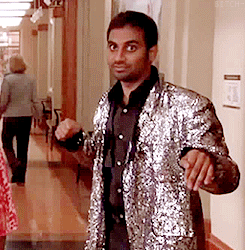During the summer of 2016, I was prescribed anti-anxiety medication.
Generally, I am an anxious person, a ‘worrier’. I overthink things and analyse situations within an inch of their lives. The person who used to say, “I work best under pressure” became the gal who realised that the stress manifesting inside her was cancerous.
As we prepared to move into our new house – the pokiest kip imaginable – my housemates and I went to IKEA to “pick up a few bits”. As I had been laden down with cutlery from my well-meaning mother, I didn’t actually need anything there (does anyone, really?) So, I ambled around, tracing products I was absolutely not prepared to purchase with my fingers.
I came across a colouring book – not one of those fancy ones with the sprawling mandalas we’ve grown to recognise from Instagram flat-lays. It was a kid’s one, covered in kooky characters and Scandinavian words I didn’t understand. With colouring books being promoted as practically a cure-all for stress and anxiety, I thought, “fuck it” and threw it into my empty basket. It was only a few euro after all.
On arrival home, I scribbled in a bit for before resigning it to the wardrobe for the rest of the year.
What is self-care?
Wikipedia defines self-care as “any necessary human regulatory function which is under individual control, deliberate and self-initiated”. Things regularly fall under the acts of self-care umbrella include getting a good night’s sleep, taking a hot bath, switching off your phone, lighting candles … The list goes on.
This week, Buzzfeed posted an article on the topic of self-care and how digital influencers are piggy-backing on its popularity to generate ad revenue. (You can read that article here).
It’s become clear that at some point, ‘self-care’ intersected the wider concept of ‘treat yo’ self’. An expression coined by comedy series Parks And Recreation, it’s self-explanatory. Want something? Just buy it – you deserve it. The world’s not going to end as a result.
More and more, peak mental health is being touted as something that comes at a premium – or in exchange for premium products.
Audiences have undoubtedly contributed to the problem.
We view YouTubers and digital influencers in a different light to ‘regular celebrities’. Filming on their handheld cameras or their Snapchat accounts from their bedrooms, they seem just like us. Some, suffering with mental health issues, let us on their ‘bad days’ – the days where they cry on camera because they can’t leave the house, or because of the emptiness that seems to run deep within them. While I wouldn’t for one second imply that their mental health issues are fictional, there’s no doubt in my mind that they’re capitalising on their own woes.
It’s for that reason that so many people, particularly young people, begin to take their word and their endorsements as gospel. At its most cynical, the underlying message in these videos can be: “if you buy this beauty/lifestyle product, your life will immediately improve.”
Very few of these people are qualified to speak in the area of mental health and the treatments available to people, but they do, based on their personal experiences. This is obviously a good thing, in terms of allowing people to identify issues and initiating conversation on mental health. But it’s a double-edged sword, as seen from the above article.
You don’t have to spend money to take part in self-care.
It goes without saying that pampering yourself is nice. Buying stuff for yourself, for the most part is nice. It’s understandable why people do it. And if it makes you feel good, I’m all for it.
It just shouldn’t be synonymous with self-care. There are a multitude of things you can do beyond a spree in Boots to take care of yourself. Some of their laughably simple, but can often be forgotten in the madness and myriad of life.
Take a walk. Take a shower. Call an old friend. Organise your desk. Clear out your wardrobe. Make yourself something really nice to eat. Lie down for ten minutes. You don’t have to break the bank to realise that as a person, you are enough and you need to take care of yourself. You definitely don’t need to be emotionally exploited into buying a lavendar pillow spray because you struggle with your nerves.
Digital influencers have a responsibility, particularly to their younger followers, to promote an understanding of the above. They should be more forthcoming in terms of discussing their own mental health, and acknowledge that they do not have all the answers. The self-care movement could have an enormously positive influence, but it has to be one that doesn’t centre around profit-making.



